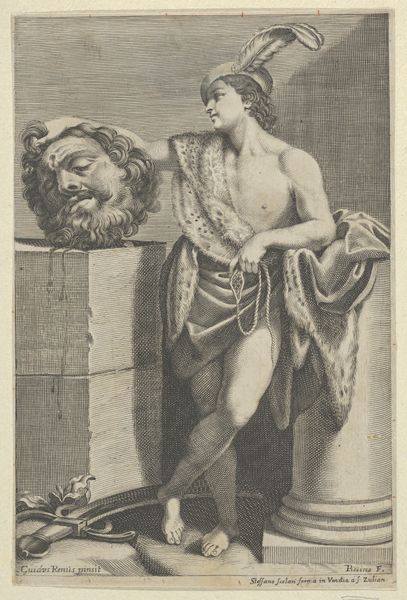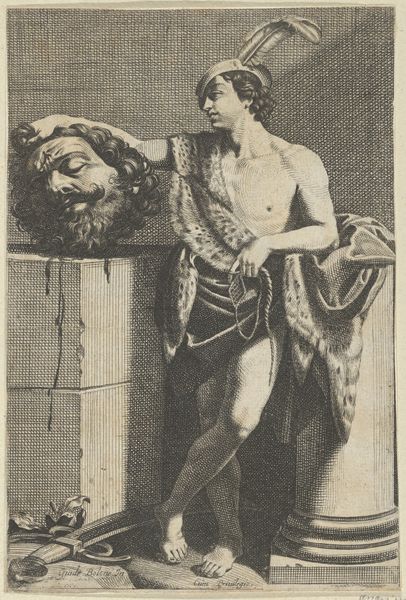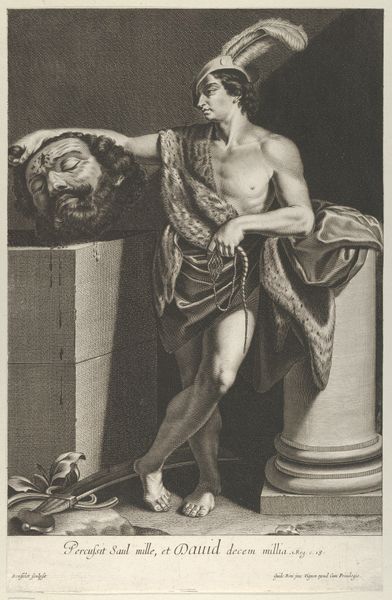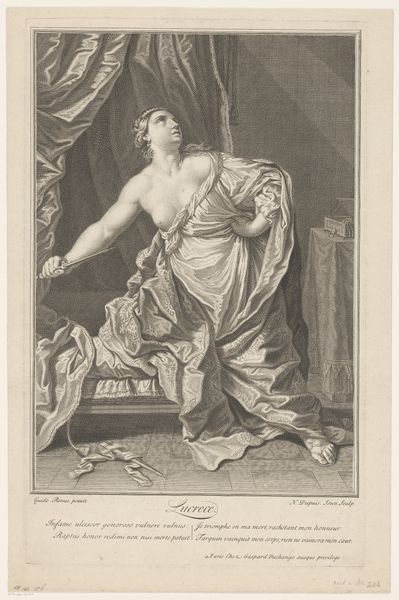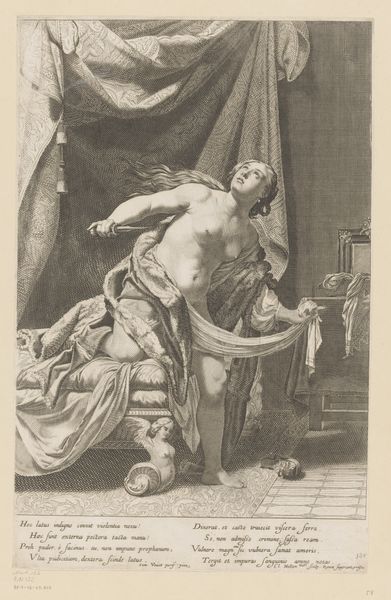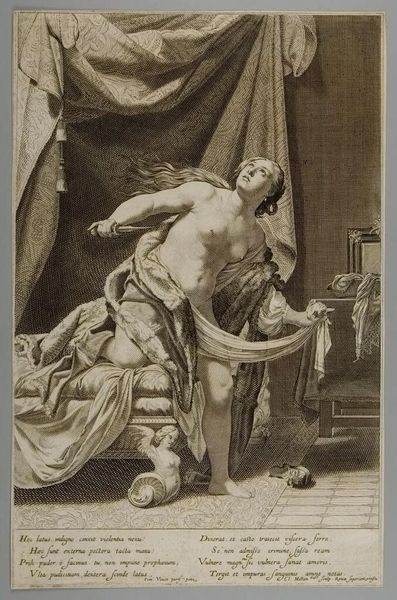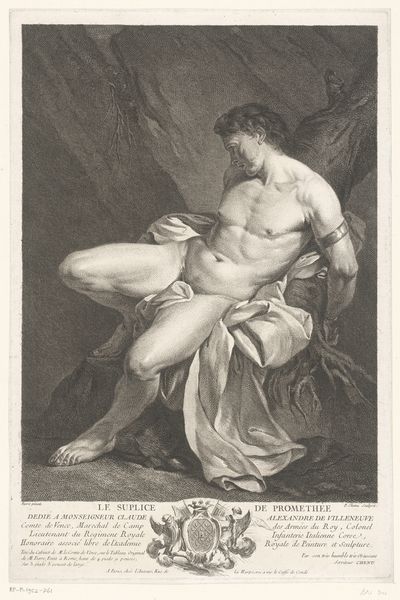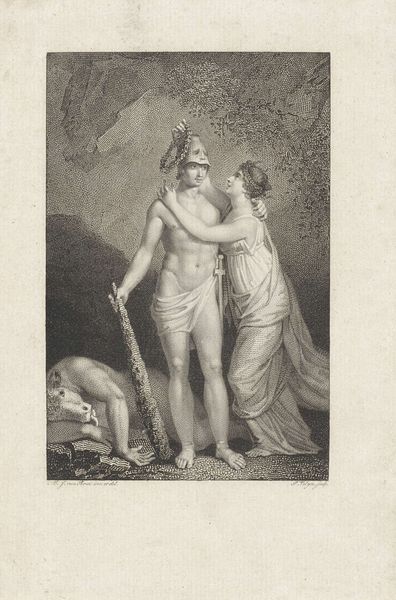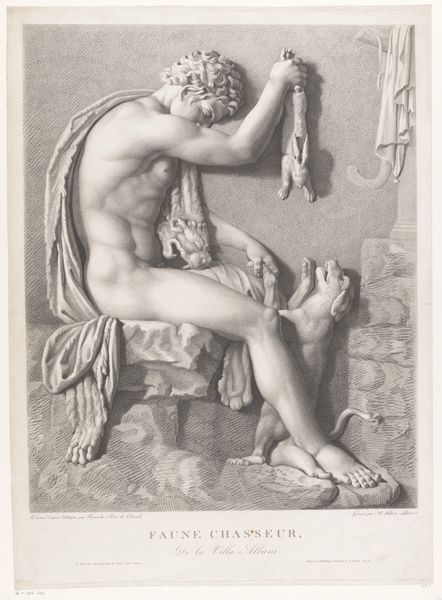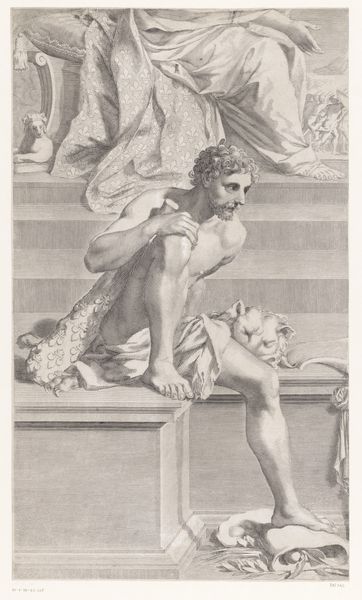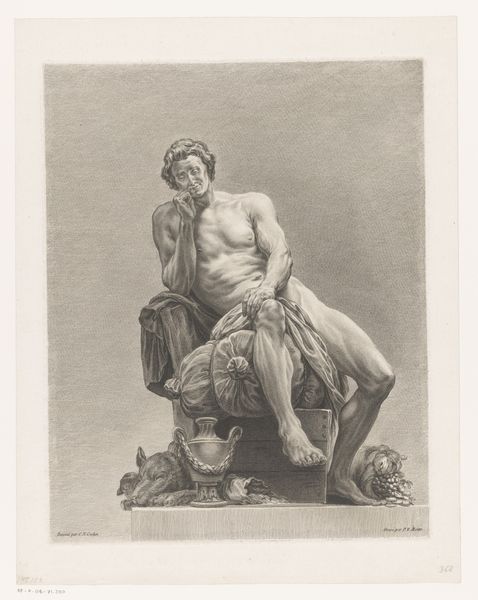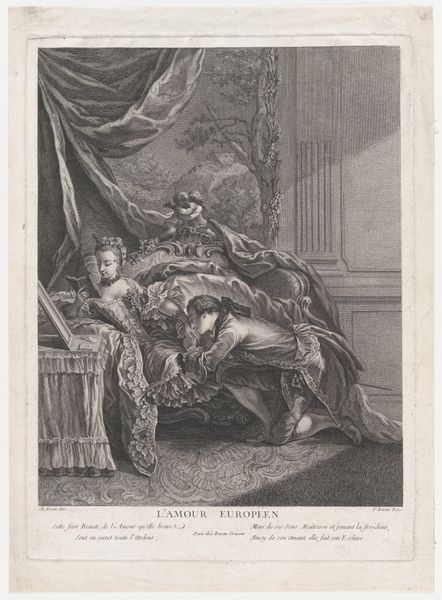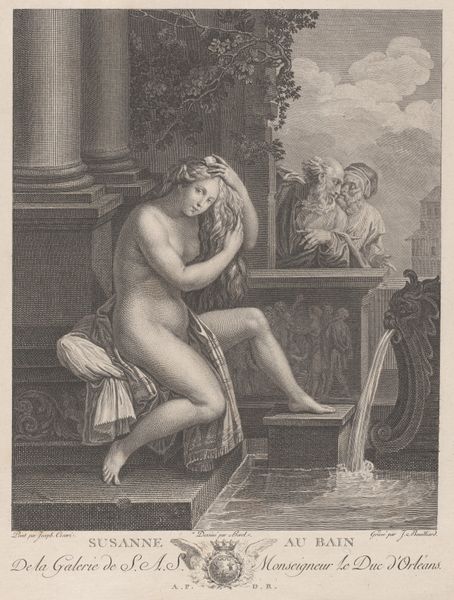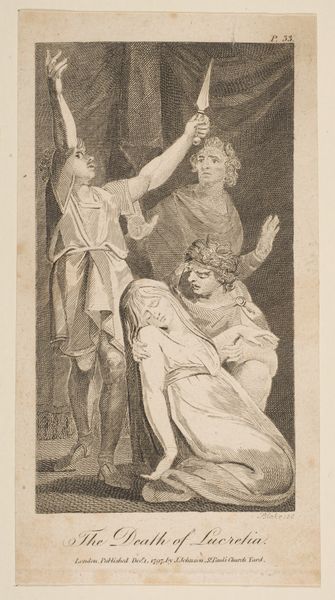
#
wedding photograph
#
photo restoration
#
wedding photography
#
charcoal drawing
#
charcoal art
#
historical photography
#
portrait reference
#
old-timey
#
framed image
#
19th century
Dimensions: height 347 mm, width 236 mm, height 19 mm, width 143 mm
Copyright: Rijks Museum: Open Domain
Editor: This is François Joseph Etienne Beisson's "David met het hoofd van Goliath," created sometime between 1803 and 1809. The stark contrast in lighting makes it feel dramatic, but also David's almost nonchalant pose is unsettling given what he's holding. How do you interpret this depiction of David's victory through a contemporary lens? Curator: It's a powerful depiction, isn't it? The figure of David, triumphant yet seemingly detached, presents an interesting entry point. Consider the narratives we inherit about power and heroism, often intertwined with masculinity. Beisson's David invites us to question this relationship. Is David a symbol of justified rebellion or does this image glorify violence? How does the artist’s choice to depict David as almost effeminate affect the message? Editor: That's interesting. I hadn’t really thought about the construction of masculinity here. Is it fair to see Goliath’s severed head as a representation of a suppressed or silenced “other”? Curator: Absolutely, viewing the vanquished Goliath as a stand-in for marginalized groups allows us to unpack the broader power dynamics at play. The image can spark a dialogue around historical and contemporary narratives where dominant forces suppress dissenting voices or communities. Ask yourself whose stories are consistently valorized and whose are relegated to the "severed head"? Editor: This reframing really gives me a lot to think about. It goes beyond just the literal biblical story. Curator: Precisely. By exploring art through the lenses of power, gender, and representation, we uncover how these images reflect and shape our understanding of the world. Editor: Thanks, I feel like I’m leaving with more questions than I came with, in the best way.
Comments
No comments
Be the first to comment and join the conversation on the ultimate creative platform.
